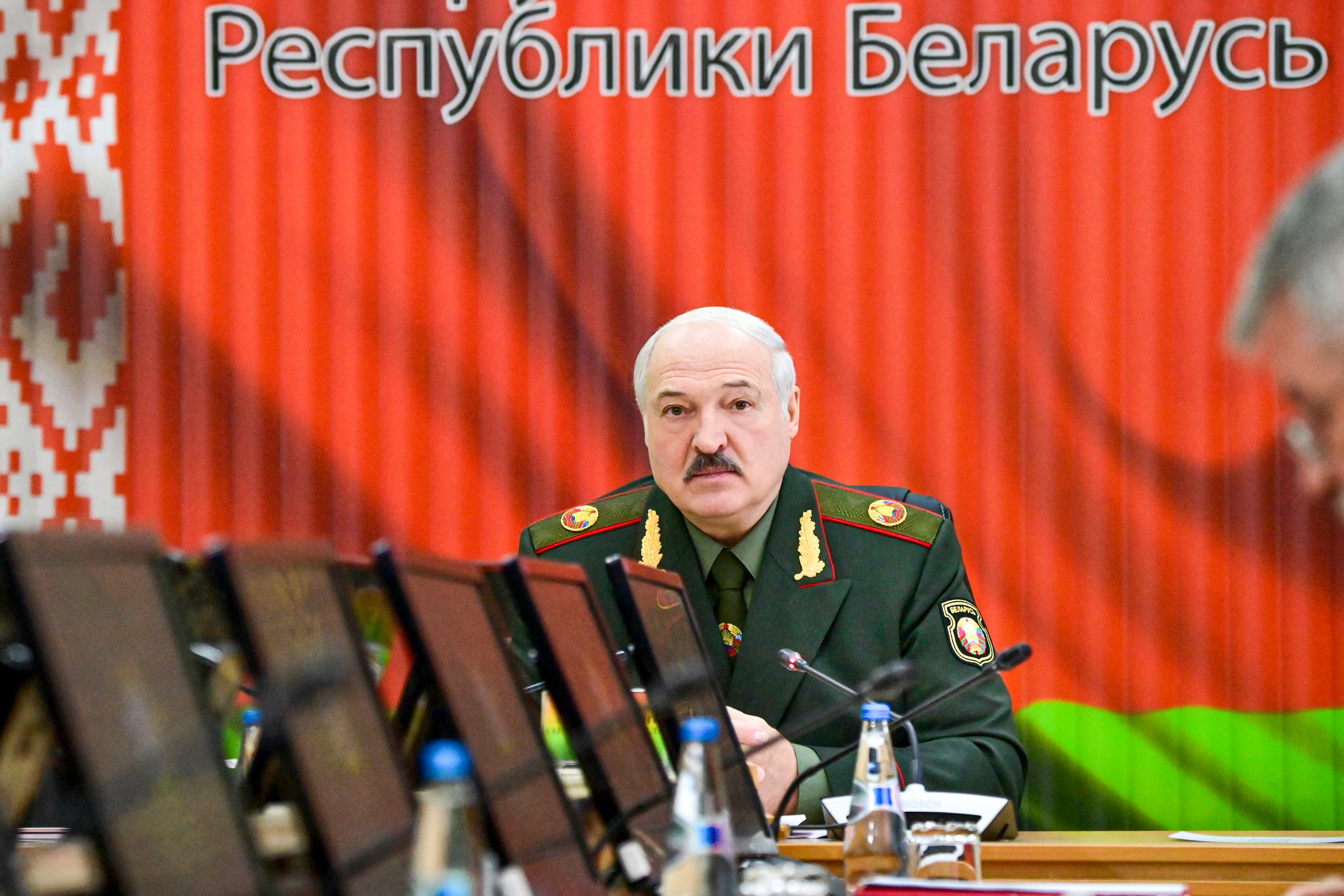Belarus targets journalists, activists with mass raids
A human rights group in Belarus says authorities have raided the homes of dozens of journalists and activists

Your support helps us to tell the story
From reproductive rights to climate change to Big Tech, The Independent is on the ground when the story is developing. Whether it's investigating the financials of Elon Musk's pro-Trump PAC or producing our latest documentary, 'The A Word', which shines a light on the American women fighting for reproductive rights, we know how important it is to parse out the facts from the messaging.
At such a critical moment in US history, we need reporters on the ground. Your donation allows us to keep sending journalists to speak to both sides of the story.
The Independent is trusted by Americans across the entire political spectrum. And unlike many other quality news outlets, we choose not to lock Americans out of our reporting and analysis with paywalls. We believe quality journalism should be available to everyone, paid for by those who can afford it.
Your support makes all the difference.Authorities in Belarus raided the homes of dozens of journalists and activists Wednesday, according to a human rights group, in what appeared to be the biggest one-day crackdown on dissent in the past three months.
Independent journalists, human rights advocates and activists in at least nine large Belarusian cities had phones and computers seized during the searches and were interrogated, the Viasna human rights center reported.
In the capital, Minsk authorities targeted 10 people accused of funding antigovernment protests and spreading information deemed extremist.
Some 300 chats on the popular messaging app Telegram have been designated extremist by authorities, and users of those chats can be sentenced to up to 7 years in prison, if charged and convicted.
Freelance journalist Larysa Shchyrakova said she was brought in for questioning after an hours-long search of her home in Gomel, a city 300 kilometers (186 miles) southeast of Minsk. Shchyrakova used to work with the Belsat TV channel, which authorities in Belarus have declared extremist.
“I was being pressured to confess to funding the protests, but I refused to incriminate myself,” Shchyrakova told The Associated Press by telephone. “They took my phone, audio and video equipment, which was still in my home after the two previous raids.”
Activists and journalists in Brest, Vitebsk, Mogilev, Grodno, Mazyr and other cities experienced similar raids and detentions on Wednesday. Leaders of regional branches of the United Civil Party, the oldest opposition party in Belarus, in Gomel and Rechytsa were targeted as well.
“The new wave of repressions shows that the authorities in Belarus don't feel confident and are forced to tighten the screws because discontent in the country is growing,” party leader Anatoly Lebedko told the AP by phone from Vilnius.
“The situation with civic freedoms and human rights in Belarus is deteriorating rapidly, edging closer to the standards of North Korea,” Lebedko said.
The authoritarian leader of Belarus, President Alexander Lukashenko survived months of unprecedented mass protests prompted by his Aug. 2020 reelection in a vote the opposition and Western countries denounced as a sham.
Lukashenko unleashed a violent crackdown on the demonstrators, with police arresting more than 35,000 and beating thousands.
Since last year's election, Lukashenko's government has shut down the majority of independent media outlets and rights groups.
According to human rights advocates, 889 political prisoners, including top opposition activists, remain behind bars in Belarus.
___
Follow AP's coverage of Belarus at https://apnews.com/hub/belarus